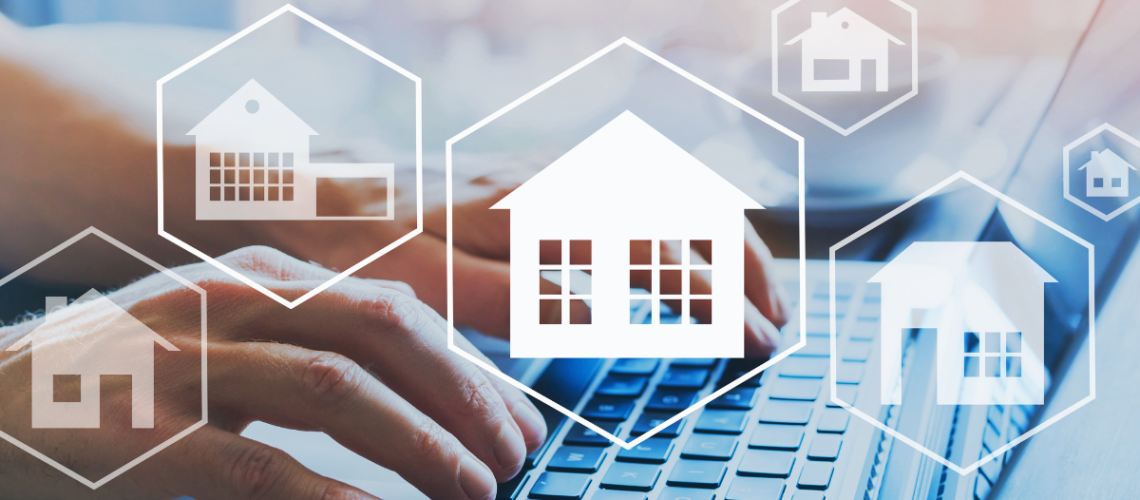Commercial real estate management, be it massive office complexes, retail centers, or industrial warehouses, is riddled with challenging issues. It is extremely difficult to keep track of the various physical assets, such as HVAC systems, heavy machinery, and security infrastructure. The old ways, like using spreadsheets or paper-based logs, usually result in unnoticed maintenance, periods of inactivity in operations, and costs going up in an uncontrollable manner. Right now, a revolutionary change in the management of assets in commercial real estate through the use of real-time technology is happening due to advanced tech, in particular, IoT devices and software development for real estate. How to make it possible for predictive maintenance to be done, for compliance to be eased, and for efficiency to be enhanced through smarter tools, let us find out.
The Shift to Real-Time Asset Tracking
The era when maintenance was performed on a reactive basis—only after failure—will soon be over. As a result of advanced technologies, especially IoT sensors, an era of predictive maintenance software that has a transformational effect on the industrial asset tracking sector is coming. Sensors that are part of the Internet of Things and installed in goods such as chillers, elevators, or security systems gather real-time data concerning location, usage, and condition. Property managers are thus equipped with the necessary tools to prevent the escalation of issues by anticipating them beforehand as this information is transmitted to the centralized platforms. By way of illustration, an alert may be generated by a sensor which records the HVAC unit’s unusual vibration and in turn may call for intervention before the costly breakdown happens. In a 2024 case study, the use of IoT-driven predictive maintenance led to a warehouse in Toronto cutting downtime by 22%.
Besides that, these types of equipment management systems can supply the information required to simplify one’s inventory and compliance tasks. Commercial establishments are often equipped with the latest technologies, which are subject to certain regulations, for example, fire suppression systems or industrial generators. To make the real estate industry more digitally skilled in the way it conducts business, custom software development has been instrumental in integrating data from IoT sensors with QR code technology. For example, a retail chain in Calgary was able to decrease the asset audit duration from several weeks to just a few hours while at the same time retaining complete compliance by employing this system to monitor 1,200 assets spread over 15 locations. Such a transition to real-time monitoring is being considered as an empowerment tool that managers can use for the precision of asset supervision, thereby lowering risks and increasing operational reliability.
Key Benefits for Commercial Property Owners
The infusion of cutting-edge technology in commercial real estate asset management is a direct line to the bottom line with measurable benefits that effectively resolve the issues that have been dragging traditional methods for a long time.
Cost Reduction
One of the major causes of cost uplift in commercial real estate asset management is the emergency repair of the building, argued to be up to five times more expensive than the planned repair of the building. By health monitoring, IoT systems can hardly go wrong in extending the life of the equipment, for the savings to be considerable. The 2025 report noted that industrial property predictive maintenance reduced costs of repair by 15–20%.
Operational Efficiency
With time, automated systems become more efficient as they are able to generate work orders, technician schedules, and implement the fixes indicated by the real-time data automatically without a hint of human intervention. In a Chicago office complex, the use of predictive maintenance software brought about a 30% reduction in response time, thus making tenants more satisfied.
Data-Driven Decisions
IoT devices and software platforms are capable of doing tons of work in no time, and the result of their work is significant datasets that the owners can use to become foresighted in their capital expenditure, and at the same time optimize energy consumption. For instance, a mixed-use Vancouver property leveraged AI-powered analytics to cut energy usage by 18% by altering HVAC schedules in line with utilization patterns. Such advantages lean out the operations and offer a higher yield to the owners of the properties, thus making industrial asset tracking a revolutionary tool for them.
Implementing a Modern Asset Management System
Properly utilizing a next-generation asset management system includes a well-planned strategy that is personalized to the individual property’s needs. Basically, the stages involve three steps:
Assessment: Checking the present assets and recognizing the most vital systems (like HVAC, security) and their servicing needs. This phase includes determining the things that will be tracked through data, such as temperature, runtime, or wear.
Hardware Integration: IoT sensors installation, RFID tags, or QR codes labeling to get the real-time monitoring of assets. For example, a warehouse in Edmonton was able to accomplish the task of maintenance history access through mobile scans by equipping 500+ assets with QR codes, thus enabling technicians to quickly retrieve the information.
Platform Deployment: Use a single software platform to collect all the data and lay the ground for the next steps. Development of real estate custom software will ensure that the platform meets particular needs, such as being able to integrate with existing ERP systems or tenant portals.
Simply buying ready-made solutions is not always the best choice for complicated portfolios since the solutions might not have the capacity to deal with unique building layouts or industry-specific rules. In 2024, a survey was conducted where 68% of the property managers chose customized platforms rather than generic ones for industrial asset tracking. Collaborating with a company like Dinamicka Development that is focused on providing tailor-made software development for real estate will give you the advantage of integration without problems and scalability to the maximum extent of your return on investment (ROI).

